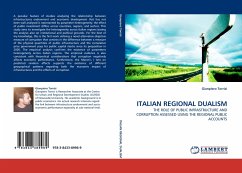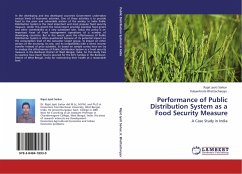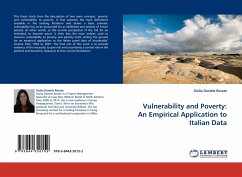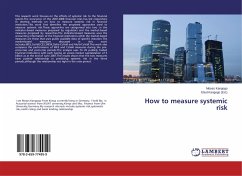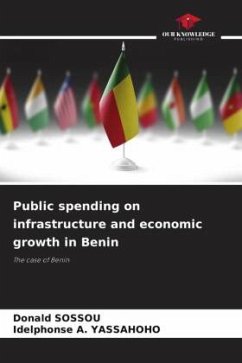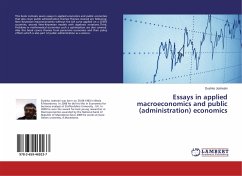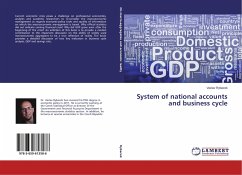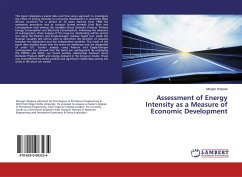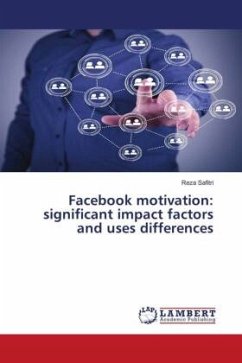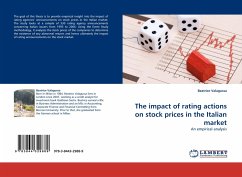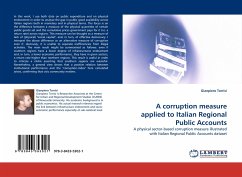
A corruption measure applied to Italian Regional Public Accounts
A physical sector-based corruption measure illustrated with Italian Regional Public Accounts dataset
Versandkostenfrei!
Versandfertig in 6-10 Tagen
32,99 €
inkl. MwSt.

PAYBACK Punkte
16 °P sammeln!
In this work, I use both data on public expenditure and on physical endowment in order to analyse the gap in public good availability across Italian regions both in monetary and in physical terms. The focus is on the difference between a measure of the physical quantities of certain public goods set and the cumulative prices government pays for it (i.e. a return rate) across regions. This measure can be thought as a measure of lack of (physical) "social capital", and, in turn, of effective democracy. I interpret the above difference as an alternative measure of corruption even if, obviously, i...
In this work, I use both data on public expenditure and on physical endowment in order to analyse the gap in public good availability across Italian regions both in monetary and in physical terms. The focus is on the difference between a measure of the physical quantities of certain public goods set and the cumulative prices government pays for it (i.e. a return rate) across regions. This measure can be thought as a measure of lack of (physical) "social capital", and, in turn, of effective democracy. I interpret the above difference as an alternative measure of corruption even if, obviously, it is unable to separate inefficiencies from illegal activities. The main result might be summarised as follows: even if southern regions have a lower degree of infrastructures endowment and, in turn, a lower economic performance, they have in given sectors, a return rate higher than northern regions. This result is useful in order to criticize a cliché asserting that southern regions are wasteful. Nevertheless, a general view shows that a positive relation between institutional performance and the "corruption-index" here calculated arises, confirming that civic community matters.



